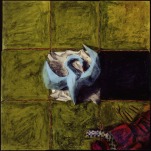Joan The Maid (DVD)

It's not often that an intertitle counts as the most telling and audacious shot in a film, especially one as brilliantly conceived and meticulously crafted as Joan The Maid, French New Wave director Jacques Rivette's two-part, four-hour historical epic about Joan Of Arc. But more than halfway through the second part—after Joan has been captured and sold to the British, and just before she's turned over to the ecclesiastical court on charges of heresy and witchcraft—Rivette cuts to a startling title: "May 24th 1431, in Rouen, after fourteen months of trial…" By skipping the trial altogether, Joan The Maid brazenly omits the dramatic centerpiece of the story, which seems particularly perverse given the film's exceptional fidelity to the historical record. But by leaving that blank space in the narrative, Rivette pays homage to Carl Dreyer's definitive silent classic The Passion Of Joan Of Arc, which compressed the entire trial into the last harrowing day before Joan was burned at the stake. As both a companion piece and a response to Dreyer's version, Joan The Maid covers all the territory Passion excluded, but maintains the same scrupulous attention to the actual transcripts and eyewitness accounts of her triumphs and persecution. In sharp contrast to Dreyer's intense, disorienting close-ups, Rivette's camera keeps an objective distance, stripping away Joan's bronzed, iconic nobility and showing her for who she really was. With the possible exception of Joan the aerobics instructor in Bill & Ted's Excellent Adventure, the saintly heroine has never seemed as refreshingly mortal as Sandrine Bonnaire, who carries herself with serene conviction and emotional accessibility. Though assured in her mission from God to reclaim Orleans from the English and deliver Charles (André Marcon), the Dauphin, to the throne, Joan isn't immune to the physical punishment of combat or even the occasional suspicion that the voices in her head may be leading her astray. In part one, "The Battles," her natural charisma inspires devotion in her fellow soldiers, who respond to her directness, resolve, and surprising sense of humor. The first two hours document her transformation into a warrior and the events leading up to her victory at Orleans. Part two, "The Prisons," begins with Charles VII's coronation at Reims, and covers Joan's futile attempts to reclaim Paris, her capture by the Burgundians, her suffering in prison, and her public execution in a Rouen marketplace. Unlike Dreyer's Joan, who remained steadfast amid harsh religious persecution, Bonnaire's clarity of purpose survives private moments of uncertainty once her fortunes turn for the worst. Though not without its flaws—the 27-year-old Bonnaire never resembles a teenager, and the modest production values weaken the battle sequences—Joan The Maid is distinguished by its star's flesh-and-blood humanity. Rivette believes in Saint Joan, but he leaves her canonization to the church.








































